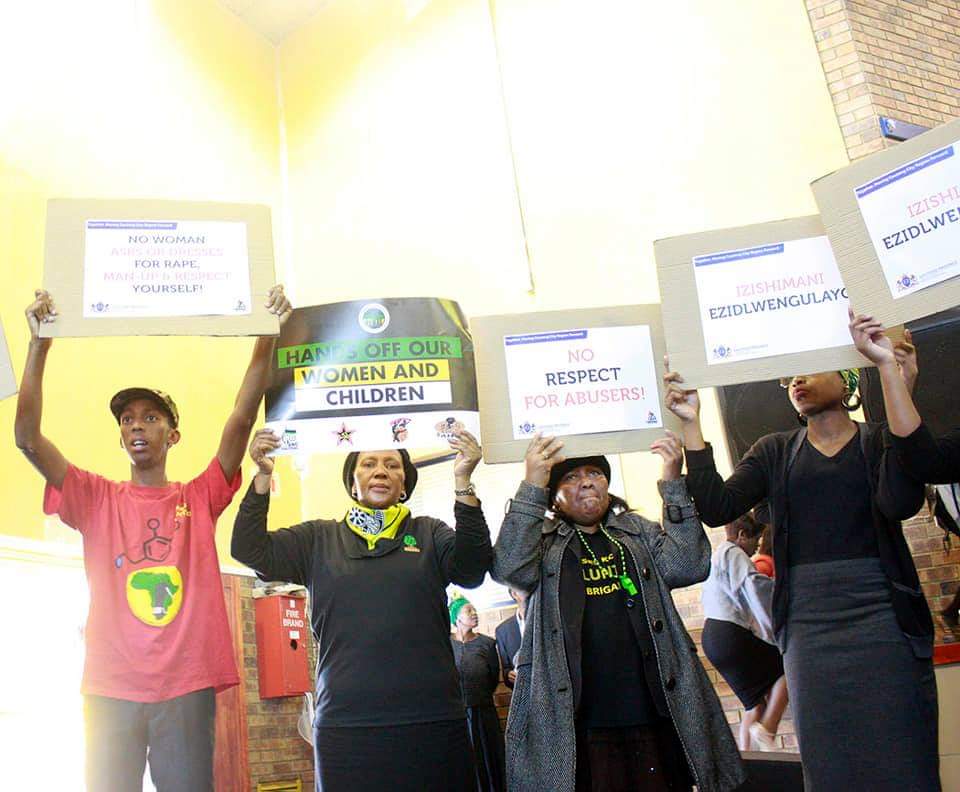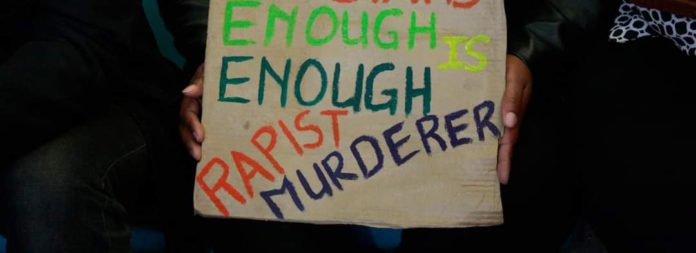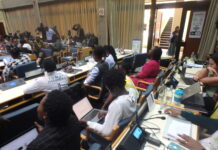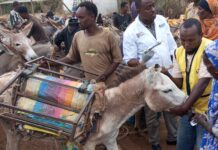By Diana Chiyangwa
Johannesburg, South Africa: For many years, Gender Based Violence and Femicide (GBVF) is an ill that has had devastating effects in many communities in South Africa. The war against gender-based violence and femicide in the country is far from over despite the new legislation that was adopted to protect victims of GBVF.
The country is still grappling with the escalating number of domestic abuses, sexual violence and femicide. In response to Covid19 and hard lock down restrictions, in 2020, President Cyril Ramaphosa declared gender-based violence as the country’s second pandemic that needed urgent intervention.
Earlier this year, President Ramaphosa, signed into the law that also include the Criminal Law, and legislation aimed at curbing the scourge of GBV, Sexual Offenses and Related Matters, Amendment Act Bill, Criminal Related Matters Bill and the Domestic Violence Amendment Bill.
Her name is Singwa Namhla Mtwa. She was shot 9 times on her driveway at Sdwadwa View in Mthatha on the 21st April 2022. It is alleged that she got killed because she was trying to leave an abusive relationship with the pictured Major Mfesane Bhekezulu. #JusticeForNamhla pic.twitter.com/SKBMyYuvxG
— Thembisile Q (@Thembisile_Q) May 20, 2022
The recent killing of Singwa Namhla Mtwa, who was shot and murdered inside her car by an unknown suspect have sparked social media outrage across the country. The citizens expressed anger, by the lack of reporting in Namhla’s case which only made a trend when her sister recently appealed on social media for justice for her sister.
Women in the news by topics in South Africa
In South Africa, only 29% female feature as news sources and subjects compared to male who are 71%.
SA Women Fight Back founder Bronwyn Litkie said: “We are always happy to see any positive moments which will help against South Africa’s second pandemic, which is GBV. However, there has been much talk over the past year regarding budgets, better victim support, mobile courts and DNA results being administered quicker for GBV cases and we have seen very little to no action in these regards. Action speaks louder than words.
According to GMMP Report, “Stories on gender-based violence (GBV) hardly make the major news of the day and when they do, women and girls are severely underrepresented as subjects and sources. Just 1% of the stories in the total sample were coded under the “gender and related” major topic that includes news on various forms of gender violence against women and girls”.
The reports also state that “Other gender violence such as feminicide, trafficking of girls and women, FGM…39%, 54% and 54% respectively”.
In his quarter two crime statistics’ report, Police Minister, Bheki Cele announced that, more than 9,500 cases of gender based violence and 130,00 cases of domestic violence were reported between July and September 2021, and 987 were murdered over the same period. These cases saw an increase by 7% compared to the same period in 2020.

The GMMP report further states that “This silencing of women continues a pattern detected in the 2005 GMMP which concluded that women did not make the news even in stories that concerned them more. In print and broadcast news, women were only 4 out of 10 subjects and sources in stories on sexual harassment, 5 in other gender violence articles.”
“GBV is a pandemic that has become a norm in our everyday lives, It’s scary how ignorance towards GBV is louder than the voices of those affected by it” said one twitter user.
Experts argue that, despite promises including National Strategic Plans to address gender-based violence and femicide, the government has still failed to provide funding for shelters and other services.
The increase in these statistics is what many South African citizens are regarding as failure by the justice system to protect the victims and survivors of GBV. Furthermore, the secondary victimization of victims and survivors of GBV by the police delays the fight and allows such crimes to continue. According to the World Bank, only 7% of women who have experienced violence have reported it to a formal source such as the police, healthcare systems or social services.
Women, mostly young black girls from disadvantaged backgrounds, women who are financially dependent on their partners are often vulnerable to GBV. In some cases, the survivors of GBV face even worse challenges in integrating into the community and their families.
One victim, and survivor, who wishes to remain anonymous spoke to TalkAfrica, said that her relationship with her abuser began like everyone else’s – with nothing but love and happiness.
“Gender based violence is real, but I want other women to know that they do not have to suffer in silence because help is at hand only if they’re willing to speak up,” she said.
Calls by human rights groups and activists have been made to government and civil society, to create a conducive environment that is safe for victims to report incidents of violence and abuse with empathy and care and without judgment and further harm.
According to a Statistics South Africa report, nearly 50% of GBV assaults are committed by someone close such as a friend or acquaintance (22%), spouse or intimate partner (15%), or a relative or household member (13%) and only 29% are committed by a complete stranger.
This story was supported by Code for Africa’s WanaData initiative and the World Association for Christian Communication.














